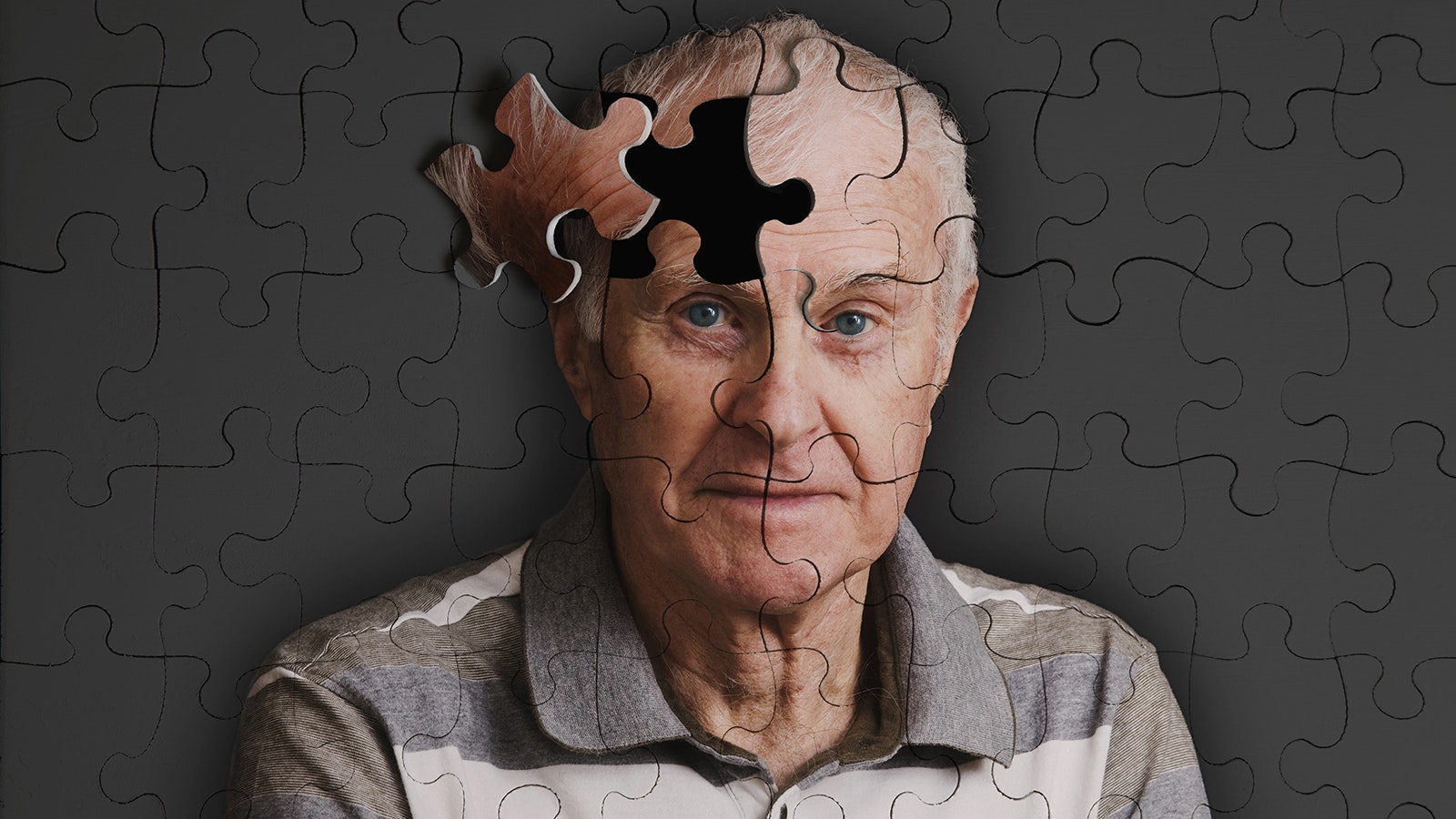Roy Eckerdt smiles when he remembers his grandfather.
Wendell “Brad” Bradford was that hands-on type of grandparent who would come home after a full day’s work and spend an hour in the backyard playing with his grandkids.
“That 65-year-old would crawl around on his knees out there playing horseback,” Eckerdt told Cowboy State Daily. “He was a very playful individual and a very, very good man.”
But when Eckerdt was still a young man, his grandfather started showing disturbing signs of forgetfulness.
“It was a very scary experience,” Eckerdt said. “He would eventually not recognize us, he wouldn’t recognize my grandma. At one point he thought that my grandma was his mother, and then it devolved to the point that (she) was just some strange lady in his house.”
When Eckerdt was 29, his grandfather died of complications from Alzheimer’s disease, and the experience changed the way he, as a law enforcement professional, would deal with adults who suffer from dementia.
That’s why Eckerdt is getting behind a bill that is making its way through the Wyoming Legislature that would create an alert system, similar to an Amber Alert for children, to help law enforcement respond to emergencies involving those who are at risk due to wandering, confusion or other challenges related to memory loss.
“As law enforcement, we take on the role of the community caretaker,” said Eckerdt. “We are often the first call when either an issue has happened at home or somebody has wandered off.”
Ashanti Alert Act
House Bill 18 has passed the Wyoming House and has been received for introduction in the Senate.
The bill would direct the state’s Homeland Security branch to help law enforcement implement the Ashanti system, which would dispatch alerts for missing adults who are suffering from cognitive issues or disabilities.
The Ashanti system is a federal program that was developed following the 2017 abduction and death of 19-year-old Ashanti Billie in Virginia.
But the Wyoming bill includes specific language that would include people with Alzheimer’s and other forms of dementia as eligible alert subjects.
“They don’t understand dangers, they don’t recognize things we otherwise would be able to dissuade from if we’re wandering on our own,” said Ann Clement of the Wyoming Alzheimer’s Association.
Vulnerable Adults
Eckerdt and his fellow officers at the Powell Police Department have had multiple interactions with lost and wandering seniors whose lives have been in jeopardy because of their memory loss.
“We’ve located seniors suffering with Alzheimer’s or dementia in the middle of a snowstorm in nothing but a housecoat because they’ve wandered off and don’t know where they are or they’re trying to get back to another area,” said Eckerdt.
He recalled an incident in which a resident of a health care facility in Powell had wandered away and was found trying to get back to his farm in Otto, 45 miles away.
Because of his experience with Alzheimer’s and dementia patients, Eckerdt knew that those suffering from memory loss often experience the world as it was when they were younger. He was careful in this instance to relate to the retired farmer in ways that would set him at ease.
“We’re talking to them today, but they’re (thinking it’s) 30 years ago,” he said. “The first time that I interacted with (this gentleman), it was a tense process because he was scared – he didn’t know who I was, and he didn’t want to get my vehicle.”
But when the man wandered off again, Eckerdt and his team knew what to do.
“We learned something about his history, and then the next time he wandered off, I got out, and I called him by name,” said Eckerdt. “And he said, ‘I don’t know you.’ And I said, ‘Yeah, you do. I’m Roy. You used to farm down by Otto, right?’ And we talked about sugar beets, and he got in my truck.
“We were able to connect with where he was at and get him to that resource.”
Eckerdt said relating to Alzheimer’s and dementia patients in ways in which they don’t feel threatened or afraid helps de-escalate what could be terrifying situations and potential danger for officers. Because, Eckerdt pointed out, it’s not just those who wander who are cause for concern.
“When law enforcement gets involved, they have either wandered off or potentially they’ve become violent at home,” said Eckerdt. “And it’s not because they’re a violent person, it’s because they’re scared and they don’t know what’s happening.”
Addressing the Problem
Eckerdt said his team, as well as other agencies around the state, have had training to help people like his grandfather get back to safety.
“We do crisis intervention team training, which is 40 hours of mental health training for law enforcement to interact with somebody who’s in a crisis,” said Eckerdt, adding that officers also are trained in de-escalation techniques.
“Officers learn to recognize different signs and symptoms, and then therefore how to interact with them in that crisis,” he said, clarifying that while technically speaking dementia is a medical issue, not a mental health issue, law enforcement uses the same techniques in handling those situations.
Additionally, Eckerdt has overseen implementation of the Special Needs Alert Program, a registry that helps the Powell Police Department partner more effectively with family members and other first responders to identify and serve people with a disability or special need, such as dementia.
The Powell Police Department also has pioneered the Blue Angel system, which uses lock boxes similar to those used by Realtors to enable patrol officers to respond quickly to in-home situations where a person with dementia may be involved and check on their welfare.
Eckerdt pointed out that while House Bill 18 is just one step of many that need to be taken, getting families whose loved ones are showing signs of dementia or Alzheimer’s connected to support systems, like the Wyoming Alzheimer’s Association, is cruicial in protecting our vulnerable adults.
“We talk in prevention all the time about getting upstream,” said Eckerdt. “This is just one more opportunity to get upstream with the education and get behind the research and development that’s being done, to be able to address the disease itself.”





